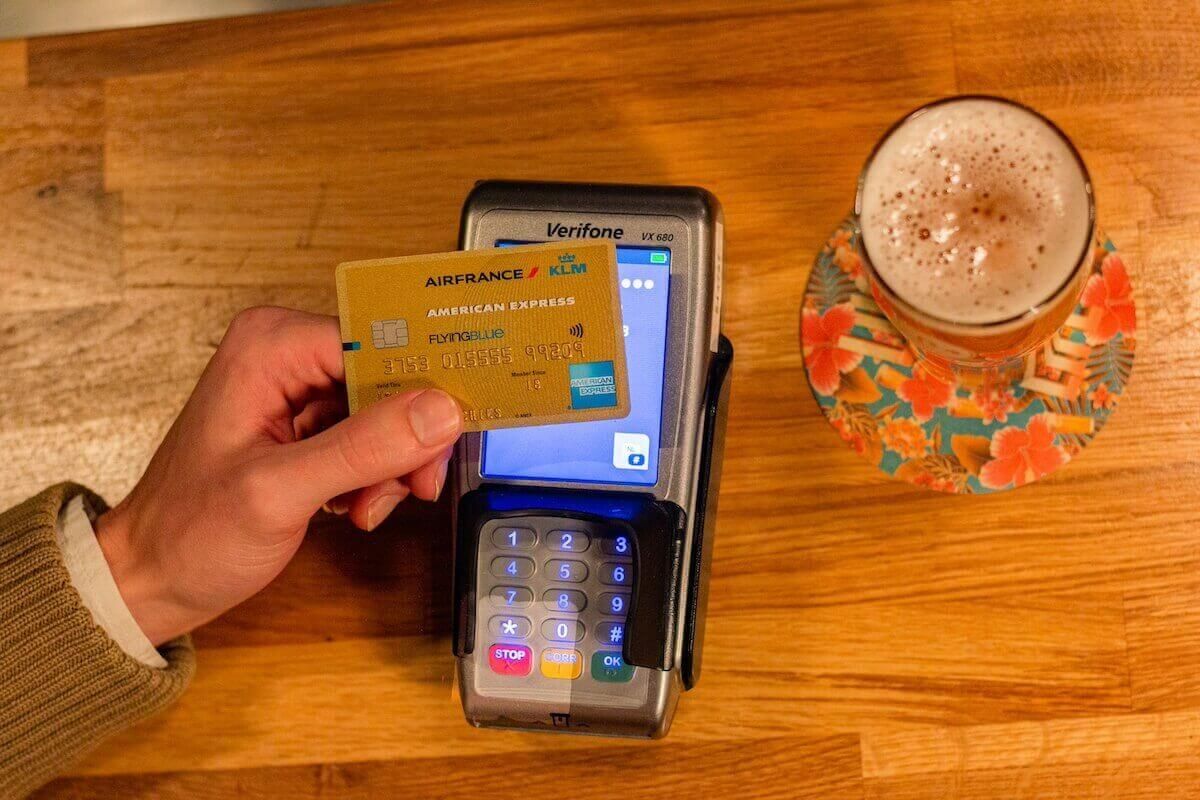Advertiser Disclosure
Last update: November 16, 2024
4 minutes read
Do Credit Cards Have Pins or Routing Numbers?
Curious about credit card PINs and routing numbers? Discover how they affect your college finances. Learn to use credit wisely and secure your financial future.

By Derick Rodriguez, Associate Editor
Edited by Brian Flaherty, B.A. Economics
Learn more about our editorial standards



By Derick Rodriguez, Associate Editor
Edited by Brian Flaherty, B.A. Economics
Learn more about our editorial standards
Understanding credit cards is essential for college students gaining financial independence. This post clarifies the difference between PINs and routing numbers, and their relevance to credit card usage. We'll cover credit card account numbers, when to use PINs, and why routing numbers don't apply. Mastering these basics will help you manage your finances responsibly.

Key takeaways
- Credit cards don’t have routing numbers, which are used for bank accounts
- PINs (Personal Identification Numbers) are optional for credit cards but important for security
- Most everyday credit card purchases don't require a PIN, which can be useful for student budgeting
Understanding credit card account numbers
Credit cards come with a unique 15 or 16-digit account number. This number serves as the primary identifier for your specific credit card account. Here's what you need to know:
- The account number is printed on your card and used for all transactions.
- It's crucial for online purchases, phone orders, and account management.
- Never share your full account number with anyone you don't trust.
Credit cards also usually come with a shorter 3 or 4-digit security code, typically located on the back of the card. This security code is essential for finalizing online purchases and proving that the card really does belong to you.
The truth about routing numbers and credit cards
One common misconception is that credit cards have routing numbers. Let's clear this up:
- Routing numbers are for bank accounts, not credit cards.
- They're used to identify financial institutions for transactions like direct deposits or wire transfers.
- Credit cards operate on a different system that doesn't require routing numbers.

TuitionHero Tip
You might need your routing number to pay down your credit card balance each month via your bank account. But when it comes to day-to-day purchases made with your credit card, you can leave the routing number behind.
Credit card PINs: What they are and when to use them
When I first got a credit card, I had to do some research to understand how using it would be different from my regular debit card. One of the key differences I learned about was the PIN.
For a debit card, PINs are necessary and you might have to provide the PIN for each transaction. But for credit cards, setting a PIN is usually optional.
While not always necessary, PINs can add an extra layer of security to your credit card:
- A PIN is typically a 4-digit code used to verify ownership of the card.
- PINs are mainly used for:
- Cash advances at ATMs
- Some purchases when traveling abroad
When you need a PIN vs. when you don’t
Understanding when to use your PIN can save you time and hassle:
- Most everyday purchases (in stores or online) don't require a PIN.
- You typically use your signature, chip, or contactless payment instead.
- PINs add an extra layer of security for certain transactions.
Compare private student loans now
TuitionHero simplifies your student loan decision, with multiple top loans side-by-side.
Compare Rates
Setting up your credit card PIN
If you need to set up or change your PIN, here are your options:
- Call your card issuer using the number on the back of your card.
- Log into your online banking account and look for PIN management options.
- Use your card issuer's mobile app.
- Visit an ATM (for some banks) and choose the "Create PIN" option.
- Go to your local bank branch for in-person assistance.
Some credit card companies will set a PIN for you after you request one. In this case, they may mail the PIN directly to you, which can be more secure than issuing the PIN by phone or email.
Credit card security tips for college students
As a student, protecting your financial information is crucial:
- Never share your PIN with anyone, not even friends or roommates.
- Memorize your PIN instead of writing it down.
- Use unique PINs for different cards to enhance security.
Monitor your account regularly for any suspicious activity.


Why trust TuitionHero
At TuitionHero, we help students navigate financial options like private student loans, scholarships, and refinancing. We also offer advice on smart credit card use, including ways to manage interest and build financial independence.
Frequently asked questions (FAQ)
Students should use credit cards cautiously, only for planned expenses they can pay off each month. It's crucial to understand interest rates and avoid carrying a balance. Consider using a credit card for textbooks or emergencies, but always within your budget.
Yes, many banks offer student credit cards with special features like lower credit limits, cashback on educational expenses, or rewards for good grades. These cards can help students build credit history while in college, but it's important to compare options and read the terms carefully.
Responsible credit card use can help students build a positive credit history. Paying bills on time and keeping balances low are key factors. A good credit score can be beneficial after graduation for renting apartments or getting better rates on future loans.
Generally, it's not advisable to use credit cards for tuition payments due to high interest rates. Most schools charge additional fees for credit card payments. Instead, explore options like federal student loans, scholarships, or payment plans offered directly by the school.
Students should monitor their accounts regularly, use secure passwords for online banking, and never share their PIN or card information. When making purchases online, ensure the website is secure. If any suspicious activity is noticed, contact the card issuer immediately.
Final thoughts
Understanding the nuances of credit card usage, including the role of PINs and the absence of routing numbers, is essential for college students managing their finances. By grasping these concepts and using credit responsibly, you can build a solid financial foundation for your future.
Remember, a credit card is a powerful financial tool when used wisely. Always prioritize security, spend within your means, and don't hesitate to reach out to your card issuer if you have any questions or concerns.
Source
- Do Credit Cards Have Routing Numbers & Account Numbers?
- What is a Credit Card PIN & How to Get One | Chase
- What is a Credit Card PIN? | Discover
- How to Use a Credit Card
- Do Credit Cards Have Routing Numbers? - Experian
- Do Credit Cards Have Routing Numbers? - swissmoney
- Credit Card Information: The Basics You Need To Know | Bankrate
- Do credit cards have routing numbers?
- Do Credit Cards Have Routing Numbers?
Author

Derick Rodriguez
Derick Rodriguez is a seasoned editor and digital marketing strategist specializing in demystifying college finance. With over half a decade of experience in the digital realm, Derick has honed a unique skill set that bridges the gap between complex financial concepts and accessible, user-friendly communication. His approach is deeply rooted in leveraging personal experiences and insights to illuminate the nuances of college finance, making it more approachable for students and families.
Editor

Brian Flaherty
Brian is a graduate of the University of Virginia where he earned a B.A. in Economics. After graduation, Brian spent four years working at a wealth management firm advising high-net-worth investors and institutions. During his time there, he passed the rigorous Series 65 exam and rose to a high-level strategy position.
At TuitionHero, we're not just passionate about our work - we take immense pride in it. Our dedicated team of writers diligently follows strict editorial standards, ensuring that every piece of content we publish is accurate, current, and highly valuable. We don't just strive for quality; we aim for excellence.
Related posts
While you're at it, here are some other college finance-related blog posts you might be interested in.
Shop and compare student financing options - 100% free!

Always free, always fast
TuitionHero is 100% free to use. Here, you can instantly view and compare multiple top lenders side-by-side.

Won’t affect credit score
Don’t worry – checking your rates with TuitionHero never impacts your credit score!

Safe and secure
We take your information's security seriously. We apply industry best practices to ensure your data is safe.
Finished scrolling? Start saving & find your private student loan rate today



